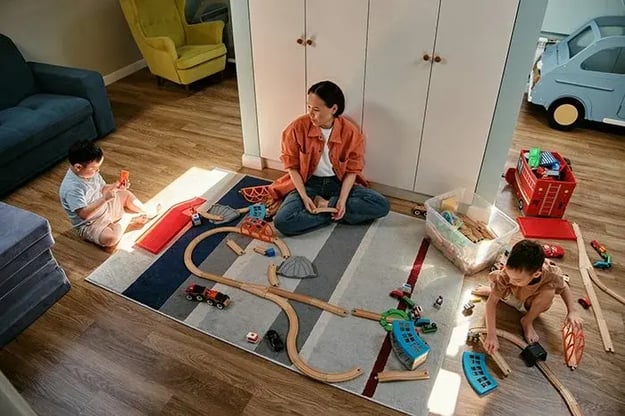Living in urban apartments, where space may be restricted, can be especially difficult for children with mobility issues, making physical activity a top priority. The chance to participate in adaptive physical activities can help these kids feel better physically, move around more freely, and gain self-assurance. To make sure that all kids, regardless of mobility issues, can take part in physical activity, these activities are specifically made to suit varying levels of expertise. The benefits of adaptive physical activities extend beyond only helping with physical growth; they also improve one's social interactions, mental health, and general quality of life. These five adapted sports are perfect for kids who live in apartments and have trouble getting about in regular places.
Chair Exercises
For kids who have trouble getting around, chair exercises are a great way to get some exercise without getting out of their seats. A wide range of motions, including sitting marching, arm circles, and leg lifts, can be incorporated into these workouts. When you sit and march, you work your abs and legs by bringing your knees up to your chest a little at a time. If you want stronger arms and more mobility in your shoulders, try doing arm circles. Just spread your arms out to the sides and move them in short, circular strokes. When you sit down and lift one leg at a time, you're working your quadriceps and building strength in your lower body. Chair exercises are perfect for settings that are restricted since they are adaptable and can be quickly adjusted to the child's skills.
Yoga and Stretching

Kids who have trouble moving around can benefit a lot from adaptable yoga and stretching routines. Asanas can be changed so that they can be done sitting or laying down. The focus should be on gentle stretches and breathing movements. You can stretch your back and legs by doing a seated forward bend, and you can improve your digestion and spinal movement by doing a sitting twist. Doing light stretching movements like reaching high, touching your toes, or side bends can make your muscles more flexible and less stiff. Not only do these things improve your strength and flexibility, but they also help you unwind and deal with worry. The child can feel calmer by doing yoga and stretching in a quiet, comfortable room in the apartment.
Balloon Volleyball
Balloon volleyball is a fun and interesting game that can be quickly changed to be accessible for kids who have trouble moving around. It's easier for the child to hit and follow with a light balloon instead of a regular volleyball. The child can play the game either sitting down or standing up, based on how well they can do it. The goal is to hit the balloon back and forth as long as possible to keep it in the air. Hand-eye coordination, arm strength, and response time are all improved by this exercise. Balloon volleyball can also be played by oneself or with family and friends, which encourages socialization and teamwork. The softness of the balloon makes it safe for indoor play because it lowers the risk of getting hurt.
Resistance Band Exercises
Resistance bands are an excellent tool for strengthening the shoulders of a child who is confined to a wheelchair. In addition, they are simple to do; all that is required is for the child to grip both ends of the band and stretch back and forth at varying rates. It is possible to modify the exercises by performing them in a diagonal fashion and by resting one end of the band on the knees. They may also be modified from light to medium to strong, depending on the strength of your child and the improved degree of fitness that they have achieved.
Seated Twists

Invest in a medicine ball that is suitable for your child's age. You should instruct them to hold it with both hands at chest level and rotate their torso gently at the waist, moving from right to left and back and forth for several repetitions. If you play their favorite music while they exercise, or if you have them finish a couple of sets during a commercial break while they are watching their favorite television shows, you may make it more enjoyable for them.
The views expressed are that of the expert alone.
The information provided in this content is for informational purposes only and should not be considered a substitute for professional medical advice, diagnosis, or treatment. Always seek the advice of your physician or another qualified healthcare provider before making any significant changes to your diet, exercise, or medication routines.




